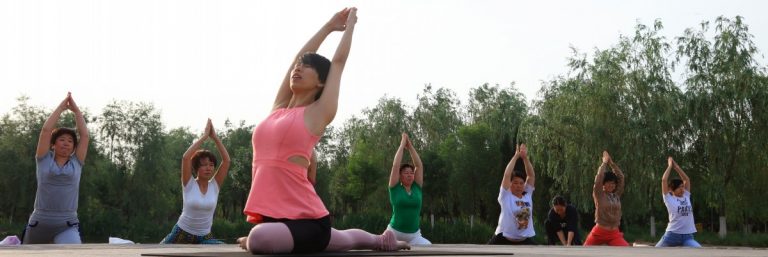
China has big ambitions to be a global superpower in sports. Its premier Xi Jinping laid this goal in writing during the ruling party’s latest congress last August – “advancing the cause of building a sports power” is part of the so-called Chinese dream of rejuvenating the nation. A national plan also aims to get one-third of the population (around 435 million people) exercising regularly by 2020.
But China is missing a vital ingredient needed to reach this goal: Physical Education teachers.
From primary schools to its colleges and universities, physical education is being shunned in favour of other subjects deemed more important to Chinese society, such as mathematics or Chinese, according to South China Morning Post.
Teacher shortage hinders Xi Jinping’s dream to make #China a great sporting nation https://t.co/q4typ7fHj3 #education #sport #Teachers
— Emilie (@paintsandsings) January 1, 2018
Teachers are poorly paid and do not have a future of great career development, despite health and fitness becoming a growing concern in the Asian country – recent findings show obesity among children and university graduates are on the rise, fitness level are deteriorating and short-sightedness is on the up.
Sports teachers in eastern Zhejiang province said they were overloaded as they are chronically under-staffed.
“There are eight of us, but one is a member of management, so he doesn’t take a full teaching load,” said Xia Liang, who teaches sports at Hangzhou Xuejun High School.
“Every school lacks PE teachers as far as I know – especially professional, qualified PE teachers.”
According to Xia, 7.5 sports teachers manage 1,800 students, when he thinks there should be 10 PE teachers at least.
At Guangdong, its higher education institutions alone were found to have a shortage of around 10,000 PE teachers, according to an official from the province’s education department. Another survey by South China Normal University in November also found there is an acute lack of sports teachers – one PE teacher has to manage 499 students at the colleges and higher education institutes in southern Guangdong.
At Alan Chen’s high school in Jiaxing, Zhejiang, there are 40 PE classes but only six teachers to take them – they also have to organise sports activities and train students for external competitions on top of teaching. Out of the six, one of them is also a member of management and thus do not take a full teaching load.
“It’s not just that the workload is heavy – often our work is not valued by the parents because PE isn’t important to them,” Chen said.
Xi’s ‘healthy #China’ goal yet to translate into action for children and teens https://t.co/jqz08Sg8sL
— 诺亚方舟 (@rongru94224) October 31, 2017
Liu Dongfeng, a professor with the School of Economics and Management at Shanghai University of Sport, agreed that PE isn’t given as much attention compared to exams by most parents and schools.
“Given this culture, schools often prioritise hiring teachers for major subjects such as Chinese and maths, and these subjects also absorb some of the teaching positions that should have gone to PE,” Liu said.
“So the key issue here is to get people to change their attitude towards PE, so that they understand that exercise is of equal importance to maths and Chinese results.
Without adequate resources for school kids, it’s nonsense to talk about becoming a sporting power because the foundation is not there,” he said.
Liked this? Then you’ll love these…
There’s a class that teaches women to ‘shut up’ in China
China warns students in Australia to stay safe in wake of ‘insulting’ incidents







